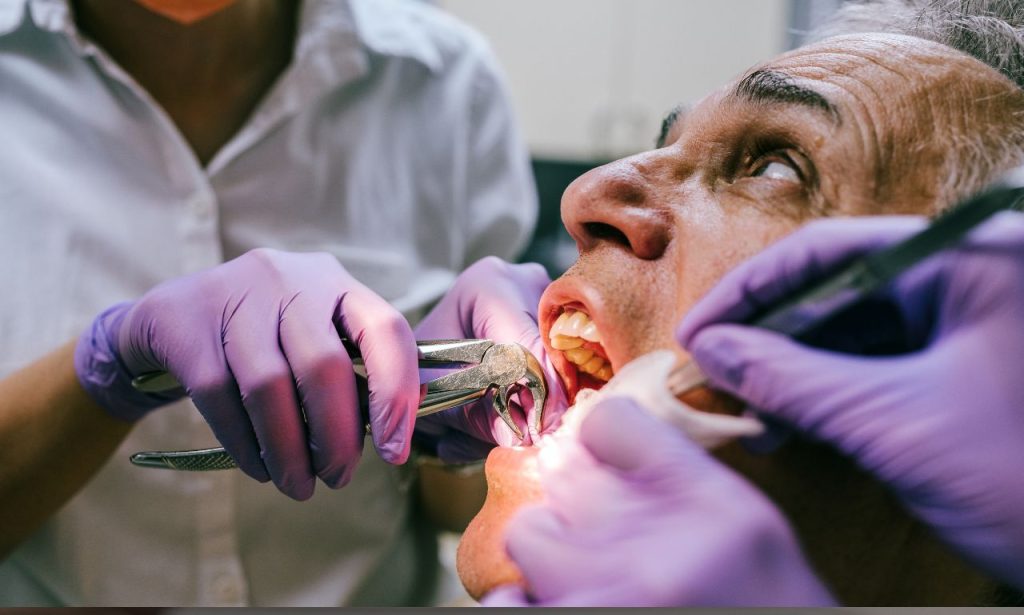Tooth pain, especially when it reaches unbearable levels, is more than just an inconvenience. It’s a blaring alarm bell, a sign from your body that something is wrong and needs immediate attention. While this guide offers a roadmap to navigating the throes of excruciating tooth pain, it’s crucial to remember that it is not a substitute for professional dental care. You’re left with one agonizing question: what can I do if tooth pain is unbearable?
Consider this your guide to understanding your pain, finding temporary relief, and most importantly, knowing when it’s time to seek the expert care of a dentist.
Causes of Tooth Pain
Before we delve into remedies and solutions, it’s essential to understand the root of the problem. Tooth pain can stem from a variety of sources, each with its own set of characteristics and implications. Identifying the cause is the first step in determining the appropriate course of action.
1. Tooth Decay

Tooth decay, also known as dental caries, is one of the most common causes of tooth pain. It’s a gradual process that begins with the erosion of the tooth enamel, the hard, outer layer of your teeth. This erosion is often fueled by bacteria that thrive on sugars and starches in the mouth, producing acids that attack the enamel.
2. Gum Disease
Gum disease, also known as periodontal disease, is an infection of the gums that can wreak havoc on your oral health. It’s a silent threat, often progressing without noticeable symptoms in its early stages.
3. Broken or Cracked Teeth
A sudden impact, a nasty bite on a hard object, or even years of teeth grinding can lead to a broken or cracked tooth. While some fractures are minor and may not cause immediate pain, others can expose the sensitive inner layers of the tooth, leading to significant discomfort.
What Can I Do If Tooth Pain Is Unbearable?
When tooth pain reaches unbearable levels, every second feels like an eternity. While seeking professional dental care is paramount, there are several immediate relief measures you can take to manage the pain until you can see a dentist.
1. Cold Compress Application
Applying a cold compress to the outside of your cheek near the affected area can provide significant pain relief. The cold temperature helps constrict blood vessels, reducing inflammation and numbing the area.
How to apply a cold compress effectively:
- Wrap it up: Wrap a few ice cubes in a thin towel or use a bag of frozen peas.
- Apply gently: Hold the cold compress against your cheek for 15-20 minutes at a time.
- Repeat as needed: You can repeat this process every 2-3 hours.
2. Over-the-Counter Pain Relievers
Over-the-counter pain relievers like ibuprofen (Advil, Motrin) and naproxen (Aleve) can provide temporary relief from tooth pain. These medications work by reducing inflammation and blocking pain signals.
Important considerations:
- Follow dosage instructions: Always follow the dosage instructions on the medication label.
- Consult your doctor: If you have any underlying health conditions or are taking other medications, consult your doctor before taking any over-the-counter pain relievers.
3. Saltwater Rinses
Rinsing your mouth with warm salt water can help soothe irritated gums, reduce inflammation, and draw out any food particles or debris that may be trapped around the affected tooth.
How to make a saltwater rinse:
- Mix it up: Dissolve half a teaspoon of salt in a cup of warm water.
- Swish and spit: Swish the solution around in your mouth for 30-60 seconds, focusing on the affected area.
- Repeat as needed: You can repeat this process several times a day.
4. Clove Oil and Other Home Remedies
Clove oil has natural anesthetic and antibacterial properties that can help numb the pain and reduce inflammation.
How to use clove oil for tooth pain:
- Dilute it: Dilute a few drops of clove oil in a small amount of carrier oil, such as olive oil or coconut oil.
- Apply with a cotton swab: Soak a cotton swab in the diluted clove oil and apply it directly to the affected tooth.
- Repeat as needed: You can repeat this process several times a day.
Seeking Professional Help
Remember, the relief measures discussed above are temporary solutions. The only way to truly address the root cause of your unbearable tooth pain is to seek professional dental care. Your dentist will be able to diagnose the problem and recommend the most appropriate treatment plan.
1. Dental Fillings
If your tooth pain is caused by a cavity, your dentist will likely recommend a dental filling. This procedure involves removing the decayed portion of the tooth and filling the space with a composite resin, amalgam, or other dental material.
The filling process:
- Numbing the area: Your dentist will numb the area around the affected tooth with a local anesthetic.
- Removing the decay: Using a dental drill or laser, your dentist will remove the decayed portion of the tooth.
- Preparing the tooth: Your dentist will prepare the tooth for the filling by cleaning and shaping the cavity.
- Placing the filling: Your dentist will place the filling material in the cavity and harden it with a special light.
- Polishing the filling: Once the filling is set, your dentist will polish it to ensure a smooth and comfortable bite.
2. Root Canals
If the infection has reached the pulp of your tooth, a root canal may be necessary. This procedure involves removing the infected pulp, cleaning and disinfecting the root canals, and then sealing the tooth to prevent further infection.
The root canal procedure:
- Numbing the area: Your dentist will numb the area around the affected tooth with a local anesthetic.
- Accessing the pulp: Your dentist will create a small access hole in the crown of the tooth to reach the pulp chamber.
- Removing the pulp: Using small instruments, your dentist will remove the infected pulp from the pulp chamber and root canals.
- Cleaning and shaping the canals: Your dentist will clean and shape the root canals to prepare them for filling.
- Filling the canals: Your dentist will fill the root canals with a biocompatible material called gutta-percha.
- Sealing the tooth: Your dentist will seal the access hole with a temporary filling.
- Placing a crown: In most cases, a crown is recommended after a root canal to protect the weakened tooth from further damage.
3. Tooth Extractions

While dentists make every effort to save natural teeth, there are situations where a tooth extraction may be the best course of action. This is typically recommended when the tooth is severely damaged, decayed beyond repair, or if there is not enough bone structure to support the tooth.
The extraction process:
- Numbing the area: Your dentist will numb the area around the affected tooth with a local anesthetic.
- Loosening the tooth: Your dentist will gently loosen the tooth using special instruments.
- Removing the tooth: Your dentist will carefully remove the tooth from its socket.
- Controlling bleeding: Your dentist will control any bleeding and place gauze over the extraction site.
- Post-extraction care: Your dentist will provide you with instructions on
Conclusion
Experiencing unbearable tooth pain can be debilitating, but remember, you’re not alone. By understanding the potential causes, knowing how to find immediate relief, and most importantly, seeking professional dental care, you can overcome the agony and get back to enjoying a healthy, pain-free smile. Prevention is key, so make oral hygiene a priority and schedule regular dental check-ups to keep your smile radiant for years to come.
ALSO READ: What to Eat After Laser Gum Surgery
FAQs
Yes, over-the-counter numbing gels containing benzocaine or lidocaine can provide temporary relief from tooth pain. However, it’s essential to follow the instructions on the product label and avoid using them for extended periods.
Yes, a tooth infection can spread to other parts of your body if left untreated. It can enter your bloodstream and travel to other organs, potentially leading to serious complications.
If your tooth pain is accompanied by fever or swelling, it’s crucial to seek immediate dental care. These symptoms could indicate a serious infection that requires prompt attention.
After getting a filling, it’s normal to experience some sensitivity to hot, cold, or sweet foods and drinks. This sensitivity usually subsides within a few days to a week. To prevent further pain, avoid chewing on the side of your mouth where you received the filling until it’s fully healed.
A dental emergency requires immediate attention from a dentist. Some common signs of a dental emergency include:
Severe tooth pain that doesn’t subside with over-the-counter pain relievers
Uncontrolled bleeding from the mouth
Swelling in the mouth or face that makes it difficult to breathe or swallow
A knocked-out tooth
A broken or fractured tooth with sharp edges that are causing pain or injury to your tongue or cheek




